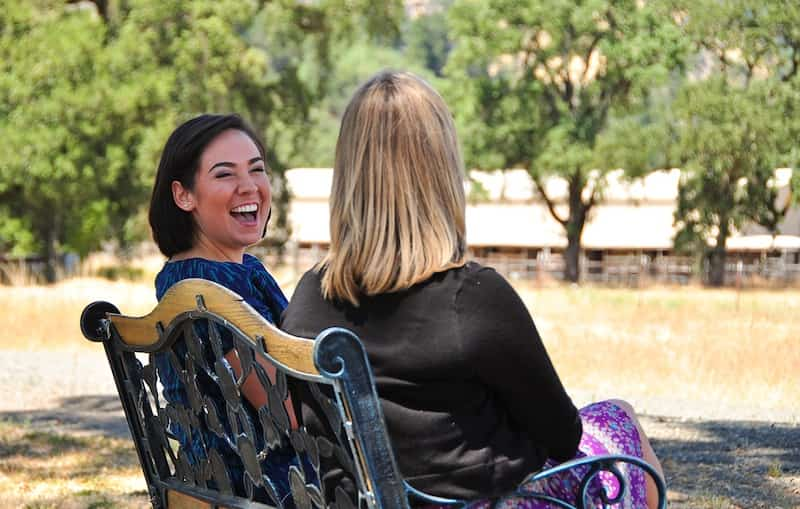Understanding Benzo Addiction
Learn about benzodiazepine addiction and abuse
Often referred to by the nickname “benzos,” benzodiazepines are a class of medication commonly used to treat anxiety disorders. Common benzodiazepines include Valium, Xanax, Ativan, and others. These medications are depressants that induce feelings of relaxation when they are ingested, making them effective treatments for anxiety and other ailments. However, these relaxing qualities can also make them tempting targets of abuse for individuals who are seeking a recreational high. Although they are quite safe when used as prescribed, benzos are powerful medications that can be addictive and extremely dangerous if not used as directed. Once an individual begins abusing these medications, he or she may find it difficult to overcome his or her compulsion to use them without professional help. Fortunately, effective treatments are available that can help individuals take their lives back from benzo abuse and rediscover long-term sobriety and health.
Statistics
Benzo addiction statistics
Nationwide, approximately 0.2 percent of adults in a given year abuse sedatives, hypnotics, and antianxiety medications according to the fifth edition of the Diagnostic and Statistical Manual of Mental Disorders (DSM-5), which is the family of drugs to which benzos belong. Rates of abuse tend to be greater among adult males than adult females, and individuals ages 18 to 29 are the most likely to abuse benzos.
Causes and Risk Factors
Causes and risk factors for benzo addiction
It is impossible to blame one single factor for an individual’s struggle with benzo abuse. However, certain genetic and environmental risk factors can increase a person’s chances of succumbing to benzodiazepine abuse. These risk factors include:
Genetic: A person’s genetic inheritance can play a role in determining his or her risk of abusing benzos. Individuals with family members who abuse these drugs are more likely themselves to also abuse them.
Environmental: In addition to genetics, environmental factors also affect a person’s risk of developing a benzodiazepine use disorder. For example, one of the most prominent risk factors is how easily accessible benzos are. The more easily accessible these drugs are, a higher the risk that they will be abused. Unsurprisingly, individuals who have been prescribed benzos are more likely to abuse them. In addition, peer influence and family environment can also affect how likely a person is to abuse benzos.
Risk Factors:
- Impulsive tendencies
- Ease of access to benzos
- High desire for novelty
- Presence of other substance use disorders
- Family history of substance abuse
- Associating with others who abuse benzos or other drugs
Signs and Symptoms
Signs and symptoms of benzo addiction
The signs and symptoms of benzodiazepine abuse can vary depending on individual personality, the length of abuse, and the extent of abuse. However, the following are common indicators that a person may be abusing these drugs:
Behavioral symptoms:
- Using benzos in larger amounts or over a longer period of time than intended
- Investing much time and energy in obtaining more of one’s benzo of choice, using the drug, or recovering from its effects
- Continuing to use benzos even in situations where doing so may be hazardous
- A history of unsuccessful efforts to reduce benzo use
- Failure to fulfill major social, academic, or work obligations as a result of use
Physical symptoms:
- Experiencing withdrawal when discontinuing use
- Stumbling or difficulty walking
- Loss of coordination
- Uncontrollable eye movements
- Slurred speech
- Experiencing tolerance, which means needing more of the drug in order to feel its effects
Cognitive symptoms:
- Amnesia or “blackouts”
- Cravings for more of one’s benzo of choice
- Poor attention or memory
- Impaired judgment
Psychosocial symptoms:
- Continuing to use benzos despite recurrent interpersonal problems, such as relationship tension with a significant other
- Fluctuations in mood
- Avoiding or giving up important social, occupational, or academic activities in order to continue using benzos
- Impaired social functioning
Effects
Effects of benzodiazepine addiction
If left untreated, benzo abuse can have grave consequences, including:
- Onset or worsening of mental health symptoms
- Polysubstance use, addiction, or chemical dependency
- Relationship strain
- Social isolation
- Financial stress
- Loss of job
- Demotion
- Long-term unemployment
- Loss of child custody
- Separation or divorce
- Overdose, especially when benzo abuse is combined with alcohol abuse
Dual Diagnosis
Benzo addiction and dual diagnosis
Dual diagnosis is a clinical term that describes the simultaneous presence of two or more mental or behavioral health disorders. People who struggle with benzo abuse are at risk for dual diagnosis. The following are among the conditions that commonly impact people who have been abusing benzodiazepines:
- Antisocial personality disorder
- Anxiety disorders
- Other substance use disorders
- Bipolar disorder
- Depressive disorders
Your possible need for dual diagnosis care is one of the many reasons why it’s important to get help at a center than can fully assess your health. Failing to get care for dual diagnosis can undermine your ability to achieve long-term recovery from benzo abuse. When you get the comprehensive dual diagnosis help that you need, you will be much better prepared to experience true and lasting healing.
Withdrawal and Overdose
Effects of benzo withdrawal and overdose
Effects of benzodiazepine withdrawal: When a person abstains from benzo use after a long period of abusing the drugs, he or she will likely experience a series of uncomfortable symptoms known as withdrawal. Some of the signs and symptoms of withdrawal include:
- Rapid pulse
- Nausea
- Vomiting
- Anxiety
- Seizure
- Short-term hallucinations
- Tremors
- Shaking
- Sweating
- Insomnia
Effects of benzodiazepine overdose: Ingesting more of a benzo than a person’s body can safely handle will result in an overdose, a dangerous and potentially life-threatening condition. Some of the effects of a benzo overdose include:
- Weakness
- Dizziness
- Drowsiness
- Slurred speech
- Anxiety
- Agitation
- Blurred vision
- Double vision
- Amnesia
- Slow or shallow breathing
- Loss of coordination
- Confusion
- Unresponsiveness
- Coma
More Information
Additional facts
How are benzodiazepines made?
Benzodiazepines are man-made psychoactive drugs composed of a benzene ring and a diazepine ring. Synthesis of benzodiazepines is a complicated process requiring special laboratory equipment and chemical expertise.
How do benzodiazepines work?
How do people get high on benzodiazepines?
People can abuse benzodiazepines by taking more than the prescribed amount, or obtaining them illegally in pill form, powered form, or liquid preparations blotted onto paper. Since benzodiazepines typically do not produce an intense high when used alone (Xanax causes euphoria in 0.1 – 1% of those who take it), the overwhelming majority of users mix benzos with other drugs.
Injecting or snorting benzodiazepines is uncommon. Benzodiazepines are not very soluble in water, and users report a burning sensation when shooting benzodiazepines. Benzo pills also contain many inactive ingredients, and snorting is not reported to be very effective.
What should I not mix with benzodiazepines?
Alcohol. Like benzos, alcohol works by enhancing GABA. Together, they have a synergistic effect, which means they amplify the effects of each other and produce a stronger euphoria. But the negative effects are enhanced as well, increasing the risk of adverse effects and overdose. The combined abuse of alcohol and benzos dramatically depress the central nervous system and can lead to loss of consciousness and stopped breathing.
Other depressant drugs (opioids, prescription painkillers, other benzos). Although opioids like Vicodin and Oxycontin produce euphoria by increasing the effects of dopamine, they also work by depressing the central nervous system. Mixing drugs with similar effects significantly increase the chance of overdose. Mixing benzodiazepines with other CNS depressants is the most common cause of fatal overdose with benzodiazepines.
Stimulants (Cocaine, Meth or Ritalin). Many people use benzodiazepine to come off of cocaine or other stimulants, but doing this gives you less control. Although stimulants and depressants have opposite effects, nothing “cancels out,” and the risk for overdose is still there. Stimulants mask the symptoms of opioid overdose, and a person could continue to take high doses of the drug without knowing he was already in the danger zone.
What are the short term effects of benzodiazepines?
The effects vary depending on the type of benzodiazepine, the dose, and the person. Generally, moderate doses can cause effects similar to alcohol intoxication. Some benzodiazepines are eliminated from the body slowly (Klonopin, Valium), and their effects may last for a few days.
- Mood swings
- Feelings of well-being
- Impaired motor coordination and slowed reflexes
- Drowsiness, lethargy, fatigue
- Headache
- Impaired memory and judgment
- Depression
- Slurred speech and blurry vision
- Nausea, vomiting, and diarrhea
- Abdominal discomfort and loss of appetite
What are the long term effects of benzodiazepines?
Long-term use of benzodiazepines may cause
- Depression
- Cognitive impairments and memory loss
- Emotional blunting, or the inability to feel pleasure or pain
- Loss of libido
- Fatigue and lethargy
- Tolerance
- Dependence and Addiction
- Adverse effects on pregnancy
What are the overdose effects of benzodiazepines?
Overdose effects are similar to alcohol overdose. Symptoms include
- Mental confusion
- Loss of motor skills and dizziness
- Very slow breathing and heartbeat
- Cold clammy skin
- Loss of consciousness
- Coma
How long do benzodiazepines stay in my system?
This depends on the drug, dosage and frequency of use. Benzodiazepines are stored in the body fat, which means they can show up in a urine test for up to 30 days and 4-6 weeks in chronic users.
- Alprazolam (Xanax) is a short acting benzodiazepine, but it can stay in the body for several weeks if taken in large doses. Traces of Xanax can be found in the urine for at least a week and up to 6 weeks in heavy users.
- Lorazepam (Ativan) stays in the urine for 1 to 2 days, but it may last longer for chronic users.
- Diazepam (Valium) lasts much longer and can be detected in the urine for up to 5-7 days. Chronic use can be detected for 4-6 weeks.
How long do the effects of benzodiazepines last?
This depends on the drug, dosage, and tolerance level of the users. Benzodiazepines are classified as either short-acting or long-acting. Short acting benzos include Alprazolam (Xanax) and Lorazepam (Ativan), while Clonazepam (Klonopin) and Diazepam (Valium) have a longer half life.
In a single dose,
- The effects of Xanax peak in about 30 minutes to an hour and last about 4 hours.
- The effects of Ativan peak in about an hour and usually last for 6-8 hours.
- The effects of Klonopin peak in about 30 minutes to an hour and last for about 8 hours.
- Even though Valium stays in your system for days after your use it, its psychological effects peak in 1 to 1.5 hours and last only 4 to 6 hours.
How much benzodiazepines can I take before I risk overdosing?
It is very difficult to overdose from benzodiazepines alone. Because tolerance develops rapidly, users can take up to 1000 times the normal prescribed amount of benzodiazepines before experiencing adverse effects.
For example, physicians advise that users never to take more than 2 mg of Xanax at one time, but users have reported to taking up to 2,000 mg of Xanax with only minor toxicity. Similarly, the recommended dose of Valium is 4 to 40 mg throughout the day, but people have been reported taking doses of up to 2000 mg.
However, when combined with alcohol or other central nervous system depressants, it becomes much easier to overdose on benzodiazepines. Creating drug cocktails is a dangerous practice that can lead to lethal results even in small amounts.
Can benzodiazepines kill you?
Yes. Even though it is difficult to die from benzos alone, mixing benzos with other drugs is one of the leading causes of death from prescription drug abuse. In 2012, benzodiazepines accounted for one third of Emergency Department visits related to non medical use of pharmaceuticals. Many celebrities—such as Marilyn Monroe, Brittany Murphy, Michael Jackson and Heath Ledger—have died from a mix of prescription sedatives and other drugs.
How do I know if I’m addicted to benzodiazepines?
You may be addicted to benzodiazpines if you find yourself:
- Needing more of benzodiazepines to feel normal
- Using more benzodiazepines than intended
- Unable to cut down or stop benzodiazepine use despite knowing you should
- Spending more money than you have on benzodiazepines
- Continuing to get high despite the problems benzodiazepine use causes
- Depending on benzodiazepines to relax or enjoy yourself
- Neglecting daily responsibilities
- Feeling guilty when using benzodiazepines
- Hiding and being secretive about using benzodiazepines






















